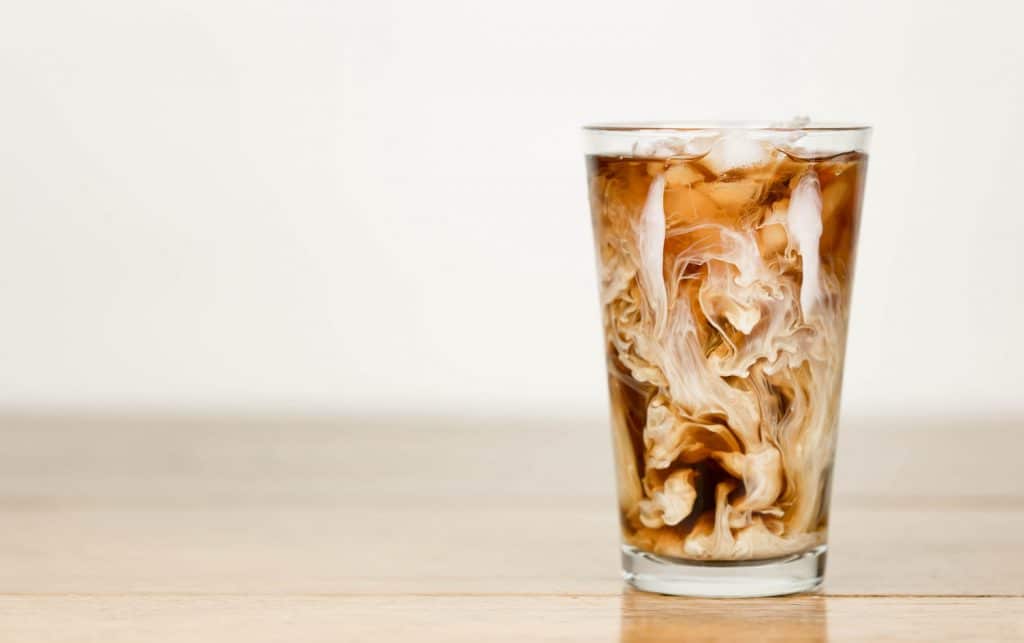Whether or not you’re getting up early to hit the fitness center earlier than work otherwise you’re headed to a night train class, you would possibly flip to a caffeinated drink for some further vitality earlier than train.
It is sensible. Espresso, tea, caffeinated sodas, and vitality drinks are all common decisions to place slightly extra pep in your step. However are they actually a good suggestion earlier than a exercise?
Some exhibits that slightly caffeine can improve some aspects of athletic performance, however an excessive amount of caffeine can have drawbacks. The secret’s understanding how a lot caffeine is the correct amount and when it’s best to have it.
Caffeine Consumption: Exploring the Results It Has in Your Physique
Caffeine is a stimulant that impacts the central nervous system, in addition to different methods within the physique.
It really works by altering the way in which your physique handles adenosine. Adenosine is a chemical that helps regulate vitality and sleep. It builds up in your mind all through the day, and when it binds to its receptors, it makes you are feeling drained.
Caffeine has a similar structure to adenosine, so it may match into the identical receptors that adenosine makes use of. When caffeine binds to the adenosine receptors, it blocks adenosine from attaching to them. Because of this adenosine can’t do its job of constructing you are feeling sleepy. In consequence, you are feeling extra awake and alert.
These receptors exist in cells all over the body so caffeine impacts extra than simply the mind. Caffeine creates a bunch of various bodily and neurological responses, together with:
- Central nervous system stimulation: Caffeine crosses the blood-brain barrier and instantly stimulates the mind. For this reason caffeine could make you are feeling extra awake and energized.
- Diuretic results: Caffeine increases urination.
- Digestive capabilities: Coffee stimulates elevated launch of abdomen acid. Some research signifies that consuming caffeinated drinks like espresso, tea, and soda can enhance the chance of heartburn and upset abdomen.
Caffeine is a really environment friendly stimulant. When you consume caffeine, 100% of it’s absorbed. Peak blood ranges are reached in 30 min to 45 min and peak plasma concentrations are achieved between 15 and 120 minutes after ingestion. Caffeine has a half-life within the physique of about 4 to 6 hours, suggesting that there are doubtless nonetheless traces of caffeine in your bloodstream 12 hours later or longer.
Like with most substances, there’s a threat of adverse results from caffeine, significantly for those who exceed the FDA’s recommendation of under 400mg per day.
The most common side effects are delicate and embody nervousness, restlessness, insomnia, elevated urination, muscle twitches or tremors, irregular coronary heart price, and gastrointestinal irritation. Extra critical unwanted effects can embody cardiac arrhythmia, myocardial infarction, and electrolyte disturbances.
Caffeine could be an efficient pick-me-up, which makes it tempting to seize a pre-workout espresso or tea. However earlier than you chug an iced latte or high-caffeine vitality drink, it’s best to think about the way it would possibly have an effect on your physique.

What are the disadvantages of caffeine earlier than a exercise?
The consequences of caffeine on totally different components of the physique can have surprising results in your exercise. This may be very true for those who don’t already know the way your physique reacts to caffeine.
For one factor, caffeine can stimulate bowel actions. The precise motive for the post-coffee rest room urge isn’t absolutely understood however some research suggests caffeine boosts hormones that set off colon contractions.
If that’s typical for you, it’s best to think about rest room entry while you plan your caffeine consumption and exercise schedule. For instance, having caffeine earlier than working on a path would possibly depart you in an ungainly state of affairs when nature calls. The diuretic results of caffeine may contribute to dehydration after a hard workout.
Caffeine can even trigger insomnia. It might probably take anywhere between 2 to 12 hours for the results of caffeine to subside, so consuming a espresso within the afternoon can imply you’re nonetheless experiencing the results of the java at bedtime. Specialists recommend that it’s best to stop consuming caffeine at least eight hours earlier than you intend to sleep. So, for those who’re planning to hit the fitness center after work, skip the caffeine.
Consuming caffeine while you aren’t accustomed to it may trigger disagreeable unwanted effects like elevated nervousness and blood stress which might negatively have an effect on your exercise.
Enjoyable truth: In 2022, our members logged over 340 million runs and walks. Log yours right this moment on the app!
What are the advantages of caffeine earlier than a exercise?
There could also be advantages to consuming caffeine earlier than a visit to the fitness center. It’s a stimulant, in spite of everything, so it may make you are feeling more energized. That further vitality enhance might provide optimistic results on exercise efficiency.
In 2021, the International Society of Sports Nutrition (ISSN) carried out a evaluation of analysis to find out how caffeine impacts train. They concluded that caffeine persistently exhibits improved train efficiency, together with:
- Cardio endurance
- Muscular endurance
- Motion velocity
- Muscular energy
- Efficiency in sprinting, leaping, and throwing
The analysis additionally exhibits that caffeine persistently results in elevated train efficiency, most notably in cardio conditioning. The impact of caffeine is determined by particular person response, dosage and exercise carried out however has proven optimistic efficiency ends in each elite and leisure athletes in sure actions. Ordinary caffeine use may dampen the efficiency enhancing response.
It’s price noting that getting enough sleep and balanced nutrition assist athletic efficiency as properly so ensuring your caffeine consumption isn’t interfering together with your sleep is equally necessary. Meals and vitamin monitoring instruments like MyFitnessPal assist allow you to be taught extra about how elements like your meals decisions might have an effect on your athletic efficiency.
Caffeine and Train: Get the Timing and the Dosage Proper
The important thing to utilizing caffeine to reinforce exercises is to devour the correct amount on the proper time.
In accordance with the ISSN report, consuming caffeine about 60 minutes pre-exercise is probably the most generally used timing of caffeine supplementation. This estimate relies on analysis that exhibits that caffeine results are likely to peak about 60 minutes after consumption.
ISSN additionally notes within the same report that the optimum dose of caffeine for efficiency enhancement is 3–6 mg of caffeine per kilogram of physique mass. Some individuals can get a profit from a dose as little as 2mg per kilogram of physique mass.
This implies a 150lb individual would possibly profit from 137mg to 408mg of caffeine. That’s the equal of between 10oz and 35oz of coffee.
The ISSN report additionally notes that larger doses reminiscent of 9 mg per kilogram of physique mass are related to the next incidence of unwanted effects.

Sources of Caffeine and Sorts You May Take into account Pre-Exercise
Most individuals flip to caffeinated drinks for his or her further enhance. These caffeine sources are normally straightforward to search out and simple to devour. But when these aren’t your factor, there are a number of decisions with totally different caffeine content material in them.
The FDA estimates that an 8-ounce cup of tea accommodates 30 to 50 milligrams, and an 8-ounce cup of espresso has 80 to 100 milligrams. Caffeinated vitality drinks might comprise 40-250 mg per 8-fluid ounces.
You may as well discover over-the-counter caffeine pills earlier than exercises. An alternative choice is chewing gum with added caffeine. Relying on the model, they could comprise 80 to 300 mg per piece of gum. Gum and tablets is usually a good choice for those who don’t need to fill your abdomen with liquid earlier than exercising.
The Backside Line
Caffeine could be a part of a wholesome way of life. Reasonable caffeine consumption is safe for most people, and it may improve vitality ranges, endurance, and energy that will result in higher train efficiency. However moderation is the important thing: An excessive amount of caffeine could make you are feeling jittery, and caffeine too late within the day could make it onerous to sleep.
MyFitnessPal’s monitoring instruments might help you monitor your sleep, meals, and exercises. Collectively, that info might help you make decisions that get you to your eating regimen and train targets. Get began with the MyFitnessPal app right this moment!
Initially printed July 11 2019; Up to date August 9, 2024








